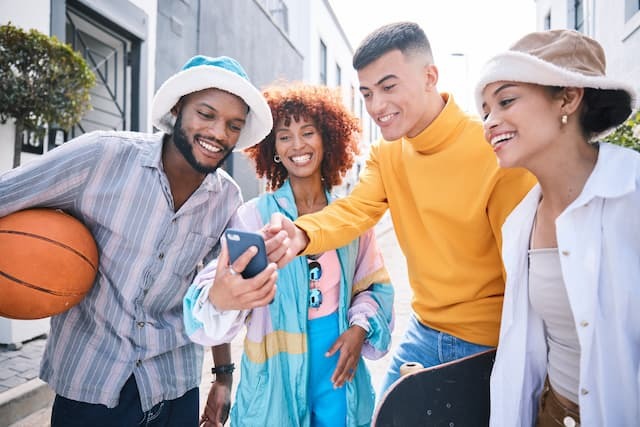Gen Z is very different from previous generations in their approach to relationships and dating. For starters, they’re more realistic.
The #MeToo movement has influenced their perspectives on sexuality and consent, but so have economic factors like student debt and the high cost of living. This has impacted their views on commitments like marriage and family planning.

1. They’re more realistic
Gen Zers aren’t prioritizing romantic relationships as much as the generations before them, but that doesn’t mean they don’t want to find love. Rather, they’re finding new ways to satisfy their dating needs that fit seamlessly into their lifestyles. For example, they’re comfortable mixing friendships and romantic relationships with long-term commitments or sexual “situationships.”
Then again, if they do decide to pursue romance, they’ll make sure that they’re not being misled. It’s all too easy to fake support for progressive causes on social media or on dating apps, known as “wokefishing,” and Gen Zs are not interested in wasting their time or energy on a relationship that doesn’t align with their values.
They’re also the most honest generation when it comes to dating. While some may see this as naive or foolish, it actually shows that Gen Z wants to find someone who’s authentic and true to themselves. This is the only way that they’ll be able to maintain healthy and stable relationships.
2. They’re more open to exploring their sexuality
Researchers have found that gen-zers are the least conservative when it comes to things like sex before marriage or LGBTQ+ relationships. This may be a result of the fact that they’ve grown up in an overtly sexual digital landscape. They’ve seen their older siblings slapped with the puriteen label for announcing their sexual preferences online and putting mild transgressions on equal footing with actual emotional abuse.
The COVID-19 pandemic also influenced their dating habits, with many avoiding the high stakes of a traditional relationship for low stakes dates on video apps. They analyze their partners with a kind of ‘sexual FOMO’ that keeps them from committing to one person for fear they’ll miss out on something better. In the end, this approach to love may be a response to their experience with the sex recession and neoliberal work culture that leaves them without the security of a steady paycheck. It may also be a response to the many stories of sexual and domestic violence that they’ve heard about in their lives.
3. They’re more pragmatic
Gen Z has a hard-nosed approach to dating and relationships. They’re not afraid to cut through the BS and make it clear what they want in a partner. This allows them to build relationships that are more meaningful and productive.
They also prioritize establishing financial independence before they settle down, which isn’t surprising given that gen-z was raised in an era of hyper inequality and instability.
They’re embracing low stakes dates like video chats to screen potential partners and aren’t willing to waste time on someone who isn’t a good fit. This makes it easier to navigate the ups and downs of love without all the drama.
They’re redefining relationship norms, such as ditching the notion of the traditional family and adopting a flexible definition of marriage. This is in part due to the fact that gen-z has come into an era of uncertain global politics and economic uncertainty. Having this mindset can help them better prepare for whatever challenges they may face.
4. They’re more open to mixing friendships and romantic relationships
Gen Z is known for bucking trends – they condemned skinny jeans, are leading the way at climate protests, and are breaking down expectations when it comes to dating. Rather than trying to impress potential partners with their political leanings, they’re focusing on being direct about what they want from a relationship and what it can bring them.
They’re comfortable mixing friendships, romantic relationships and even sexual “situationships” to meet their emotional and physical needs. These gray areas aren’t a threat, however, but instead a new opportunity to find connection.
Post-pandemic, gen-z is embracing the idea that relationships don’t have to fit into a box or conform to an age-old escalator of dating to living together to marriage. This is reflected in their interest in “situationships,” which grew significantly after the pandemic and have skyrocketed in search traffic this year.
